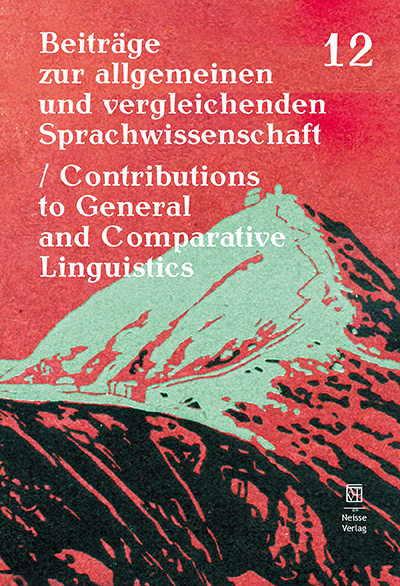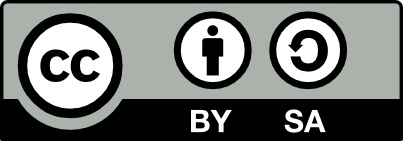
Beiträge zur allgemeinen und vergleichenden Sprachwissenschaft / Contributions to General and Comparative Linguistics
Issue 12 (2023)
Edited by: Edyta Błachut, Adam Gołębiowski, Dorota Klimek-Jankowska, Krzysztof Migdalski
Deutsch als lingua franca: Bericht über ein forschungsbasiertes Lehrprojekt der 4EU+Allianz / German as lingua franca: report on a research-based pedagogical project of the 4EU+ Alliance
DOI: 10.23817/bzspr.12-1 (published online: 2023-12-20)
pp. 7–27
Keywords: German and Contrastive Linguistics, mono- and multilingual corpora, Lexicology and Lexicography, Pragmatics, Discourse Analysis, active learning strategies, German as a scientific language
This paper presents an overview of the activities and results of the European Network of German and Contrastive Linguistics (GerCoLiNet), which was part of the European University Alliance 4EU+ (May 2021 – June 2022). With the cooperation of five European universities (Copenhagen, Milan, Paris, Prague, Warsaw) as well as the Institute for German Language (Mannheim) as an external partner, the network put together a training programme for MA and PhD students of German language and literature at the universities involved in the project. Developed within the framework of contrastive linguistics, the programme takes into account empirical approaches to both theoretical and applied aspects with special attention paid to the fields of Corpus Linguistics, Lexicology, Lexicography, and Discourse Analysis. In keeping with the basic ideals of Flagship 2, i.e. Europeanness, data literacy and multilingualism, particular emphasis was placed on networking among students and young academics within the 4EU+ Alliance. In this paper I first discuss the role and the importance of German, the exclusive lingua franca within the project, as an identity-forming element. Then, I explain the four main phases of the project; finally, I outline some innovative teaching strategies which were used to promote and increase interaction between partners as well as between the students involved in the project.
Neue Interjektionen im Deutschen und im deutsch-französisch-italienischen Sprachvergleich. Eine deskriptive und kontrastive Korpusstudie / New interjections in German compared to French and Italian. A descriptive and contrastive corpus-study
DOI: 10.23817/bzspr.12-2 (published online: 2023-12-20)
pp. 29–55
Keywords: interjection, function of language, contrastivity
This paper investigates the functions of new interjections “oops/ups”, “wtf”, and “yep” by means of a corpus-based approach. The samples for the monolingual and contrastive analyses were selected from DeReKo und Czech National Corpus. The main findings of the monolingual analysis show that examples of the emotive and phatic functions prevail in the samples and that subclasses of the emotive category as displayed in current grammars of German are sometimes inadequate as far as a more nuanced classification of interjections is desired. The contrastive analysis of the selected interjections revealed predictably similarities; nevertheless, some fine-grained differences have also been recognised.
„Einwanderer“, „Flüchtling“, „Migrant“: ein korpuslinguistischer interlingualer Vergleich (Deutsch, Dänisch, Italienisch) / ”Einwanderer“, ”Flüchtling“, ”Migrant“: a corpus linguistic interlingual comparison (German, Danish, Italian)
DOI: 10.23817/bzspr.12-3 (published online: 2023-12-20)
pp. 57–86
Keywords: migration, interlinguistic discourse analysis, equivalents, corpus linguistics
Migration has been a topical phenomenon for centuries, which explains why the discourse on migration has been analysed under various perspectives, including linguistic ones. The present paper intends to settle in this field, conducting an interlinguistic discourse analysis which takes into consideration the Italian, German and Danish online language. We asked ourselves what the most used terms to name people involved in migration were, how they were translated in the most important dictionaries of the considered languages, and whether we presuppose or assume the same, while using these terms in the different languages. To answer these questions, the TenTen-Family corpora available on Sketch Engine were used. After looking at the most important German words to name people who set off to move in another country and their Italian and Danish equivalents proposed by dictionaries, we decided to focus on “Einwanderer”, “Flüchtling” and “Migrant”: after a first quantitative comparison between the German, Italian and Danish equivalents based on their relative frequency, a qualitative interlinguistic analysis of their collocations and metaphors was carried out using a number of tools available on Sketch Engine, with the aim of highlighting general tendencies. The results proved that the equivalents provided by dictionaries show in fact a high degree of complexity in their use in the online discourse: not only do they not always appear in the same contexts (see collocations), but they often do not share the same metaphors. This paper paths the way for further linguistic studies in this field, but it could also prove useful for translators dealing with online language in German, Italian and Danish.
Schwankungen bei der Flexion schwacher Maskulina im Deutschen: eine korpusgestützte Pilotstudie an der Schnittstelle zwischen Morphologie und Semantik / Variations in the flexion of weak masculine nouns in German: a corpus-based pilot study at the interface between morphology and semantics
DOI: 10.23817/bzspr.12-4 (published online: 2023-12-20)
pp. 87–105
Keywords: inflection, variation in inflection, weak masculine nouns, German nouns, polysemic qualities
The use of weak masculine nouns in German challenges the established grammatical and theoretical concepts by its variation in inflection. In this paper two typically weak nouns „Mensch“ and „Bauer“ are looked at in German Referential Corpus (DeReKo) under consideration of their polysemic qualities. The focus is on whether the meaning or the source can be considered a factor for the formal variation. Qualitative and quantitative analyses from this perspective confirm earlier approaches and provide it with more nuance. All the meanings of both nouns show variation in their inflection regardless of the source. However, more dependence is noticeable between the source and the variation than between any meaning and the variation.
Musterbildung und Musterproduktivität innerhalb phraseologischer Makroparadigmen des Typs „in der Klemme sein“ / Pattern formation and pattern productivity within phraseological macroparadigms of the type „in der Klemme sein“
DOI: 10.23817/bzspr.12-5 (published online: 2023-12-20)
pp. 107–130
Keywords: Construction Grammar, aspect of idioms (Aktionsart) , synonymy, antonymy, systematic variation of idioms, pattern formation, coining
The object of the contribution is the action-type-related, synonymous and antonymous variance of the idioms of the type “in der Klemme sein”, which is thematized against the background of the traditional phraseological and construction-grammatical approaches in phraseology. The idioms are compiled in their macroparadigms and examined with regard to the formation mechanisms (construction patterns/templates) of the action type related variants, synonymous and antonymous pairs. The goal of the paper is to identify the design patterns (construction patterns, templates) present within the macro paradigms. The conceptualizations and descriptive entities of traditional phraseology underlying the paper: micro- and macroparadigms, character fields, model formations/phraseotemplates, synonymous and antonymous pairs, synonymous phraseological series appear compatible with the tools of construction grammar, in particular with the entities of construction and construction pattern and the mechanism of coining. Thanks to the consideration of the language as a whole (language system in its entirety) and the orientation towards cross-level (lexis-syntax-semantics) and at the same time systematic changes, construction grammar provides a favorable theoretical framework for the description of the paradigmatically conditioned variance of idioms.
The Most Problematic Aspects of American Pronunciation for Polish Learners of English with and without Prior Phonetic Training
DOI: 10.23817/bzspr.12-6 (published online: 2023-12-20)
pp. 131–151
Keywords: phonetics, phonology, General American English, Polish, contrastive study
Previous research on the topic of contrastive phonetics and phonology of Polish and English and studies of pronunciation errors focused only on British RP without examining General American (GA). Hence, this paper aims to describe the most problematic pronunciation errors that may be made by a Polish learner of American English as a second language, and it also evaluates the role of explicit training in phonetics received by Polish learners as well as determines whether it is possible for learners without prior phonetic training to adopt certain aspects of pronunciation from a native General American English teacher. Furthermore, this paper focuses on pronunciation errors that are caused by the linguistic contrasts. These aforementioned pronunciation errors are verified through a linguistic experiment, which relies on an analysis of parameters regarded as significantly influencing an accent (such as voicing or aspiration) present in recordings of two groups of ten participants, one consisting of learners with a prior phonetic training, and the other without any phonetic knowledge. The results of the experiment show that the most challenging aspect of GA English pronunciation for less advanced learners is the production of sounds that do not exist in the learners’ native language, whereas for the learners with prior phonetic experience the most problematic are the rules of releasing the plosives. The experiment also indicates that the role of a native speaker in the pronunciation learning process can be beneficial; however, learners require explicit corrective feedback to avoid distortion and negative transfer.
Exploring subjective well-being of older adult foreign language learners: Results of a pilot study
DOI: 10.23817/bzspr.12-7 (published online: 2023-12-20)
pp. 157–181
Keywords: positive psychology, foreign language geragogy (FLG), older adults, older adult foreign language learners, lifelong learning
Societies are ageing and there is a growing desire in people aged 60 and more to continue their education in late adulthood. Yet, there is still a scarcity of research related to Foreign Language Geragogy and to the relationship between well-being and foreign language (FL) learning in later years. The results of recent studies show that learning another language can be not only related to maintaining, slowing down, or, to some extent, even improving the decline of cognitive functions in older age, but it might also have a positive impact on the quality of life of healthy, normally ageing older adults (Klímová et al. 2021; Pikhart/Klímová 2020). The main aim of this research, conducted at the University of the Third Age in Wrocław, was thus to evaluate the level of subjective wellbeing in a group of 31 Polish beginner and pre-intermediate level learners of English and to suggest classroom implications that might enhance positive functioning. The study adopted a mixed-methods approach: the quantitative data was presented using descriptive statistics and the qualitative data was analysed using nVivo software. A thematic analysis of the data set was done to identify patterns of meaning. The results indicate that FL courses can affect older adults’ quality of life and should, therefore, focus not only on the development of linguistic abilities, but that they also need to offer opportunities for socializing, and fostering emotional and social well-being. The teachers’ role is thus to improve third age learners’ FL skills alongside autonomy and agency, as well as to strengthen a sense of community and connectedness, and to promote positive ageing.
Minderheitensprache im didaktischen Kontext am Beispiel des Deutschunterrichts in Polen / Minority language in a didactic context using the example of German lessons in Poland
DOI: 10.23817/bzspr.12-8 (published online: 2023-12-20)
pp. 183–201
Keywords: minority, minority language, minority education, german minority
Zwischen den Welten: Digitale Kompetenzen und Tools in der Fremdsprachendidaktik am Beispiel des Polnischen und Russischen / Between the worlds: Digital competences and tools in foreign language didactic on the example of Polish and Russian
DOI: 10.23817/bzspr.12-9 (published online: 2023-12-20)
pp. 203–215
Keywords: digital tools, foreign language didactic, media in didactic, teacher media training, Game-Based-Learning
The article aims to present the results of the Interreg project “DPL digital” at the Department of Slavonic Studies at the University of Greifswald and the implementation of digital tools in foreign language pedagogy on the example of Polish and Russian. The project was carried out in the seminar “Media Use in Foreign Language Teaching Didactics”. The essence of the project was to familiarize students with selected online tools that can be used in teaching foreign languages. It was conducted as part of the seminar “Use of media in foreign language teaching”, whose didactic assumption was strengthening the digital competences of future teachers through project work. Nowadays, practice-oriented media pedagogy is an integral component of teacher training and an essential prerequisite for modern teaching in schools (Bäsler 2021:431). DPL digital follows the Game-Based-Learning approach when presenting or assessing linguistic content in a playful way. Recent analyses of the use of online tools in teaching Polish as a foreign language indicate that the effectiveness of learning process in the treatment group increases by 17% (Kaźmierczak 2020:46).
Ein Paradigmenwechsel bei Polnisch als Herkunftssprache in Deutschland. Ein Bericht
DOI: 10.23817/bzspr.12-10 (published online: 2023-12-20)
pp. 217–218

